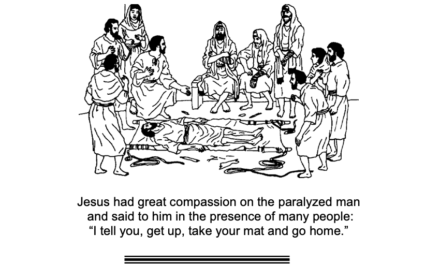
Drama
USE OF DRAMA IN ORAL CULTURESDrama takes many forms in different cultures. It has been underutilized in ministry among oral cultures. Some ways in which it has been used are described below.
One of the most delightful experiences for many people in learning the Bible is to re-enact biblical stories as someone narrates the events. This has proven to be very effective among both Christian and non-Christian adults. Re-enacting biblical stories improves participants’ understanding of the stories in many ways. For instance, re-enacting the story clarifies the spatial relationship among events in the story. It also clarifies the sequence of events and reasons for what happened.
In one training event, for instance, the participants were having difficulty telling the story of the father who brought his demon-possessed son to Jesus’s disciples and then Jesus himself (Mk. 9:14–28; 30–32). They struggled with the sequence of events. Re-enacting the story simply while someone narrated it revealed where the problem lay. Members of the group kept omitting Jesus’ question to the father, “How long has he been this way?” Once they had voiced the father’s plea, they had been moving immediately to narrate Jesus’ deliverance of the boy. But the re-enactment drew the group’s attention to Jesus’ inquiry. Someone asked, “Why did Jesus bother to ask this question at just this moment in the story? I don’t see any reason for it.” A nurse in the group said, “I understand why. In nursing school we were taught never to treat a patient without first doing an accurate diagnosis. Jesus is getting the information for his diagnosis.” The combination of the re-enactment and that explanation of why Jesus asked his question after the father’s plea enabled the participants to understand Jesus better and tell the story more accurately thereafter.
Dramatizing a biblical story often enables participants to connect emotionally with characters in the story in a powerful, transforming way. It gives participants more capacity to empathize with the struggles and fear of people in the story and it often gives them a greater appreciation for God the Father and Jesus. In an all-male gathering, a middle-aged man agreed to play the role of the woman with a bleeding problem (Mk. 5:24-34). True to the story, he fell at the feet of Jesus trembling with fear. When the dramatic re-enactment ended, he rose from the floor with tears in his eyes. “I never realized how alone and vulnerable she was,” he explained.

When groups know the Bible story well enough and are reasonably comfortable with acting their roles, individual actors can say their lines while someone else narrates the rest of the story. From there the group may want to transition to more complete drama according to their local customs and practices. As with other art forms, new Christians in particular can benefit from having a more knowledgeable Christian help them think through the various considerations as they determine how to use their own traditions of drama, theatre, and the like for Christian stories.
Scriptures In Use has reported excellent response to their drama training. In SIU’s Communication Bridges training they teach parables from the Bible and then encourage the group to re-contextualize the biblical parables. That is, members of the group tell a very similar story that is set within their own culture and current-day setting. The experience of recasting the story into their own context stimulates a lot of careful thinking and discussion about the parable, its relational dynamics, the customary beliefs and practices that it presupposes, its teaching(s), and comparable situations in their own community.
SIU leaders report that local Christians often relish this activity and demonstrate remarkable creativity in improvising their script and acting out their modern-day parables. Audiences watch the performance with rapt attention; they fully engage with the story and the characters. The actors often excel at bringing the story to life with a bare-bones set, simple costuming, and a minimum of props. The dramatized versions of the parable are able to address situations and practices in a prophetic way that would be hardly tolerable if someone were to critique them head-on in a speech or sermon.






